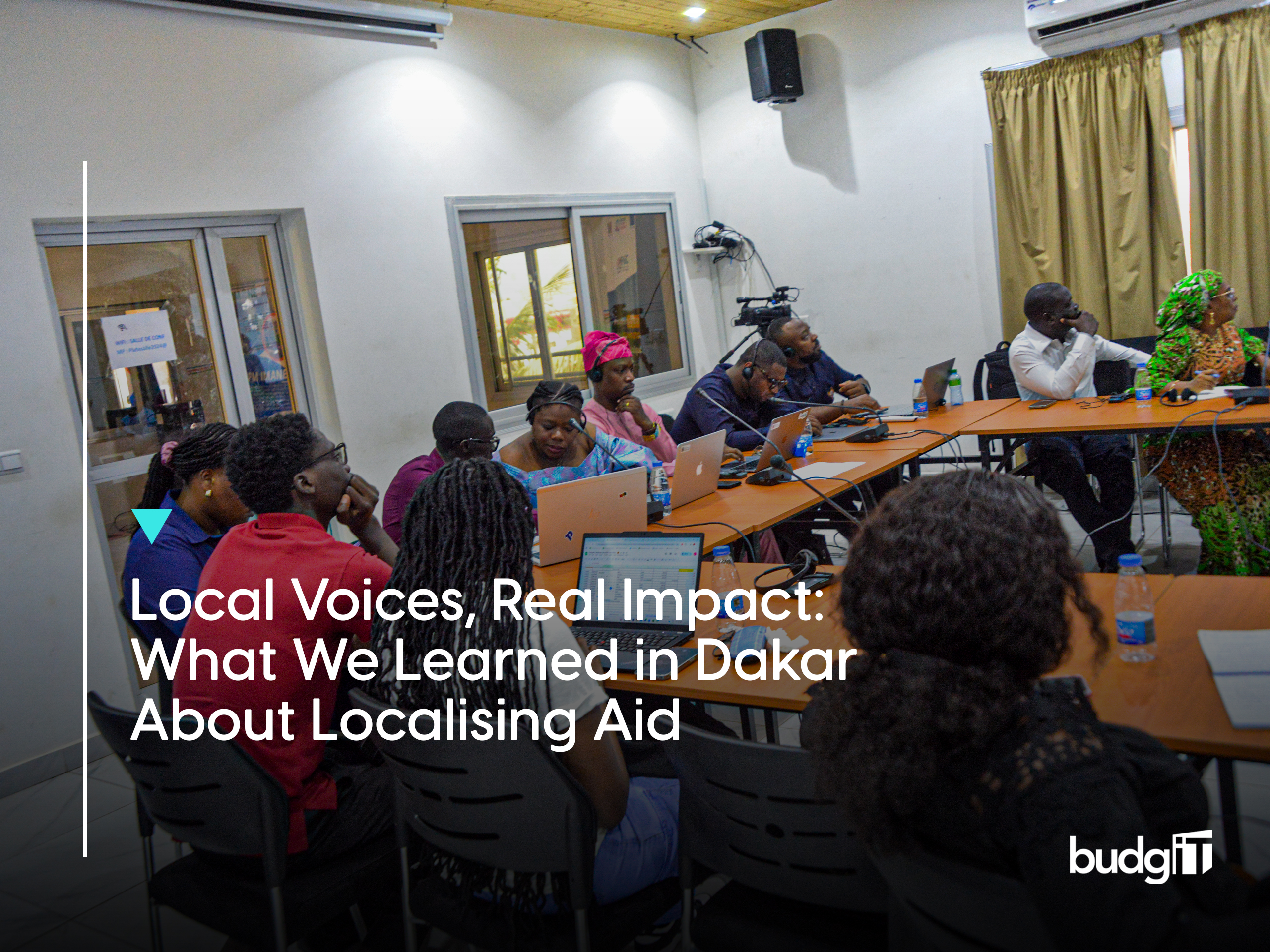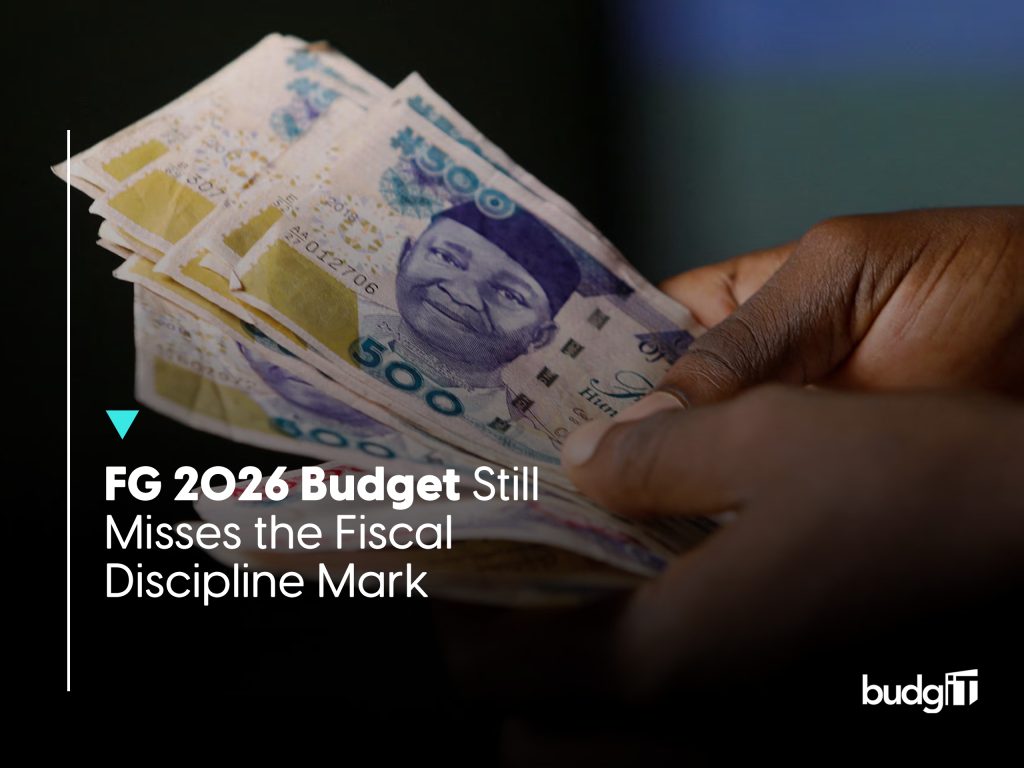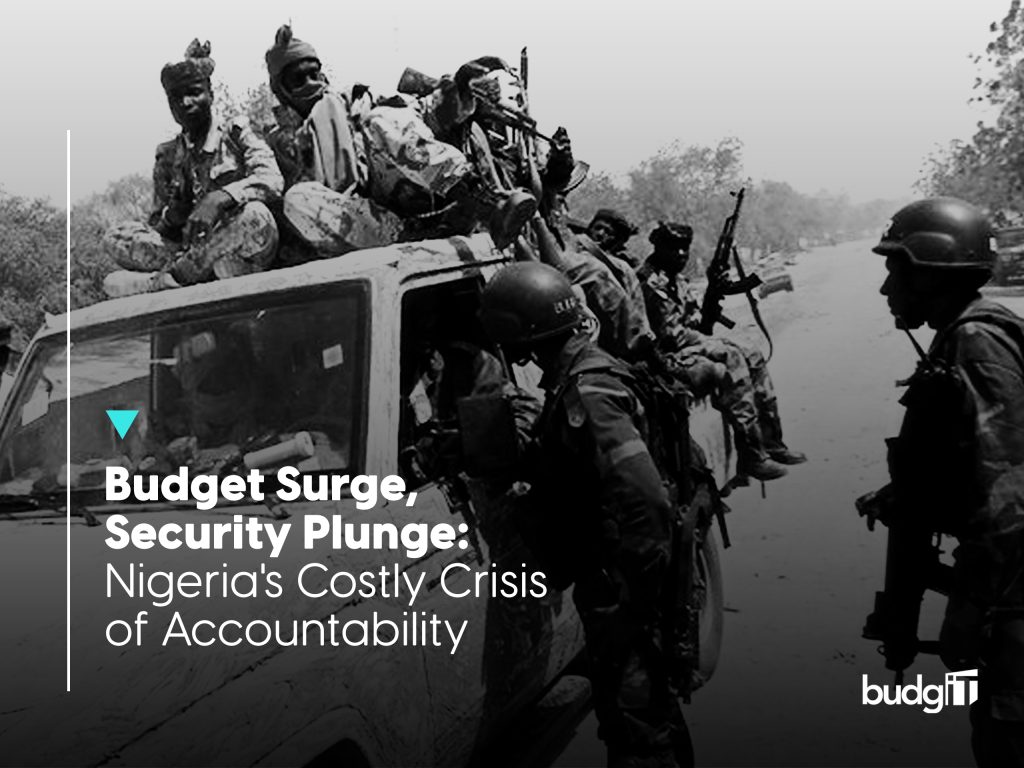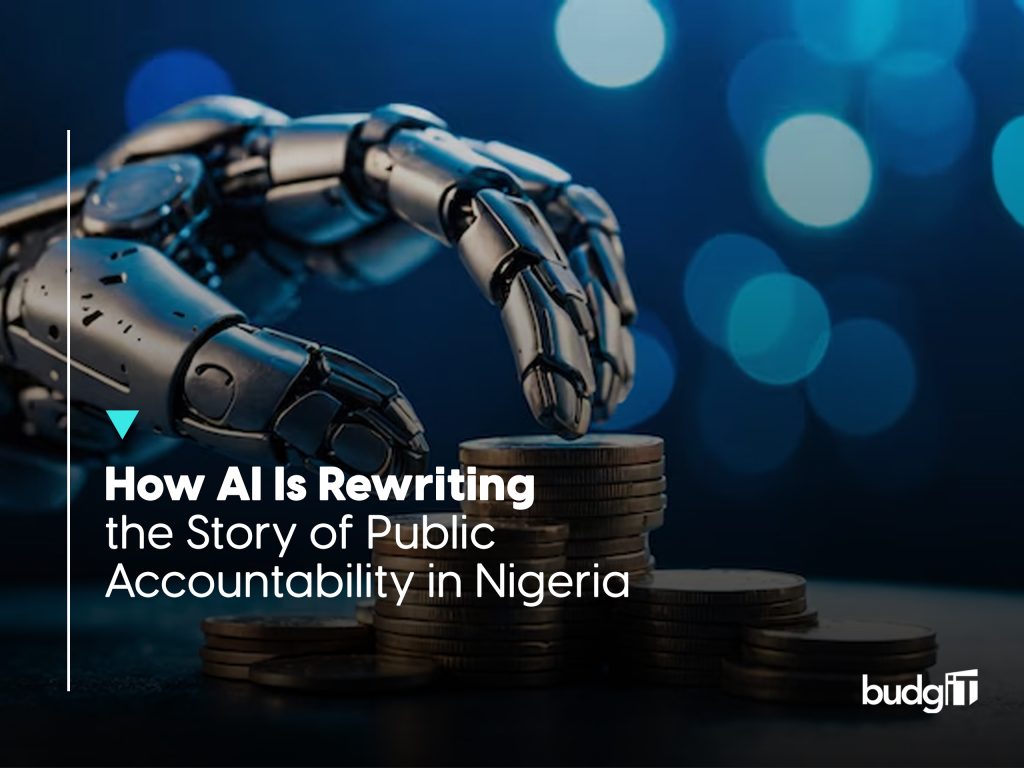On June 18, 2025, BudgIT, in collaboration with Connected Development, hosted a Pause and Reflect session in Dakar, Senegal. This was not a typical conference or meeting. It was an intentional space created for civil society organisations, community-based organisations, community leaders, and development actors to share honest reflections about what it truly means to localise development aid.
The event brought together 30 participants from different parts of Senegal. Their work spanned sectors like health, education, agriculture, and governance. Each of them came with lived experiences that challenged traditional aid structures and inspired new ways of thinking about development.
Exploring the Past to Make Sense of the Present
The session began with a presentation that offered a wide-angle view of how development aid has evolved in Senegal. From its colonial foundations to present-day partnerships with institutions like the European Union, USAID, AFD, and the World Bank, participants explored how historical and global forces have shaped local development agendas.
One part of the conversation focused on how Structural Adjustment Programmes in the 1980s led to a reduction in government-provided services. This shift gave civil society organisations a more central role in service delivery. Many in the room saw direct links between that moment in history and the current push for localisation.
Participants highlighted how, even today, international donors still maintain significant control over project priorities and processes and how funding is often tied to rigid targets, complicated reporting requirements, and timelines that do not reflect realities on the ground. They also shared many examples of resilience during the conversation, and how community-led initiatives in health and agriculture had succeeded and even expanded after donor funding ended. These stories showed the potential of local ownership when trust and autonomy are prioritised.
Reflecting on Realities and Reimagining Localisation
During the session, participants took time to unpack the concept of localisation. It quickly became clear that there is no single definition that works across the board. People described it differently based on their roles, regions, and challenges.
What united many of the reflections was a call for better alignment between donor expectations and community needs. Some development programmes were seen as disconnected from the local context. Others faced obstacles because they did not include community voices during the design stage.
Participants shared practical ideas for improving how localisation happens. These included:
- Creating a collective resource pool through membership contributions from local CSOs.
- Strengthening sector-specific organisations that can provide focused expertise.
- Clarifying the legal framework that guides the work of NGOs.
- Encouraging regular collaboration between civil society and government stakeholders.
- Using digital tools to improve accountability, simplify reporting, and connect partners.
There was also strong interest in building a shared framework for localisation that reflects both global standards and Senegal’s cultural and social realities.
Throughout the session, BudgIT listened closely. As an organisation working across several African countries, we understand that development must be shaped by the people who live and work in the communities where it takes place. The Dakar experience reinforced this belief. We saw firsthand that local organisations are not waiting to be empowered. They are already leading, adapting, and innovating in the face of limited resources. What they need are fewer barriers, more flexible funding, and stronger partnerships based on trust.
The conversations also helped us better understand the gaps that still exist in donor approaches. Many international actors are speaking about localisation, but are not yet shifting enough power or resources into local hands. If these patterns continue, localisation will remain a concept rather than a reality.
BudgIT also recognised the importance of creating spaces like this one. Moments of pause, reflection, and dialogue help surface positions, agendas and solutions that are often missing from high-level strategies. Indeed, they help foster relationships that can lead to deeper collaboration long after the event ends.
What Happens Next?
The Dakar session is just one part of a broader project. BudgIT and CODE will be hosting a similar conversation in Nigeria, where civil society and community-based organisations will share their experiences with aid and development in their own context. The ideas and feedback from both countries (including Kenya) will be combined into a multi-country report, used to inform future advocacy and improve the way development is delivered across Africa.
This is not a one-time activity. It is part of a growing effort to shift power, strengthen responsibility, encourage transparency, and promote truly community-driven development.



